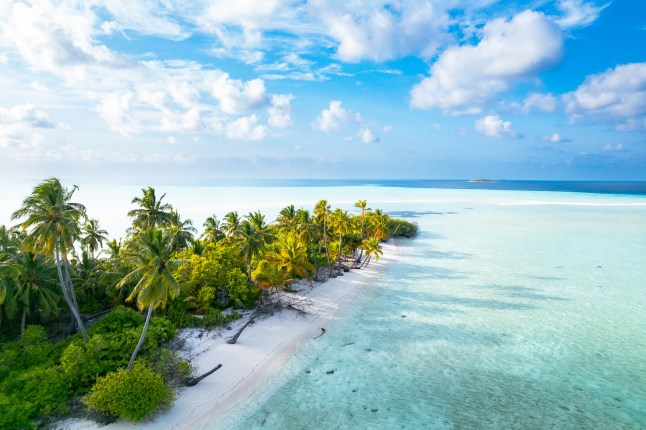[ad_1]

The Maldives is loved for its natural beauty and luxurious hotels (with prices to match) — and it just got even more expensive for travellers to visit the destination.
As of today – December 1, 2024 – departure taxes for non-residents will increase by up to 400%, as the Maldivian government aims to stabilise its struggling economy.
What this means is you’ll be charged at least $50 (£39.25) just to leave the archipelagic state, up from the previous minimum fee of $30 (£23.55) for economy class passengers.
Those travelling business class face an even steeper rise, with the rate doubling to $120 (£94.21) per person.
But it’s first class and private jet fliers hit hardest. Where in the past, fees sat at $90 (£70.66) and $120 (£94.21), they’ve now surged to a whopping $240 (£188.42) and $480 (£376.84) respectively — although we can’t imagine private jet passengers will feel the pinch too much.
These charges, automatically added to airfare, apply uniformly, irrespective of the length of stay. So, even if you only go for a night or two, you’ll still have to shell out the same amount.

That’s not all though. From January 2025, the green tax levied on tourists in the Maldives will also be doubling. Guests staying in large resorts of 50 or more rooms will pay $12 (£9.42) per night, compared to the previous $6 (£4.71), while the tax at smaller properties goes up from $3 (£2.36) to $6 per night.
Plus, the tourism goods and services tax will be going up from 16% to 17% in July next year, making an even bigger dent in your travel fund.
Authorities will be expecting resorts and operators to do their bit, depositing all foreign currency revenue in local banks and exchanging a minimum of $500 (£392.54) per guest per month into Maldivian Rufiyaa through a licensed bank in the archipelago, while guesthouses and hotels with 50 or fewer rooms must exchange $25 (£19.63) for every tourist arrival.
And failure to comply could be costly, incurring a fine of up to MVR 1 million (£50,855).

The measures are being introduced in an effort to address a high current account deficit and ensure the country has sufficient reserves to service debts, but critics have expressed concern over potential impact on the tourism industry.
In a letter addressed to the Maldives Monetary Authority Governor, Mohamed Moosa, chairman of Crown and Champa Resorts, called the rules ‘arbitrary’ and ‘unfeasible’, warning of ‘disastrous domino effects’ on the economy, given 30% of Maldivian GDP comes from tourism.
The government has set an ambitious target of 2.4 million tourist arrivals in 2025 (up from 2 million this year) but industry leaders warn visitors could be put off by the additional costs, and their introduction could hamper further growth.
It’s a dream holiday spot for many, so if the Maldives is on your bucket list, you best get saving now.
Do you have a story to share?
Get in touch by emailing MetroLifestyleTeam@Metro.co.uk.
MORE: One of the world’s most remote countries just opened a new airport
MORE: UK’s ‘quaint paradise’ named one of the world’s best places for 2025
MORE: London landmark that’s ‘hell on Earth’ named one of world’s top buildings
[ad_2]
READ SOURCE














